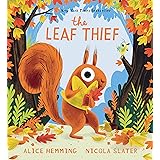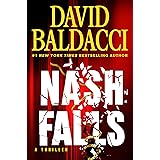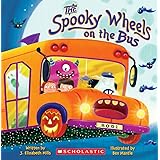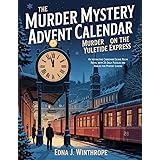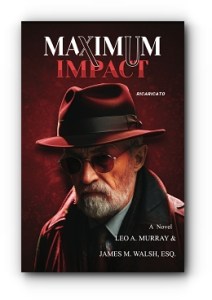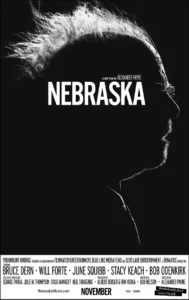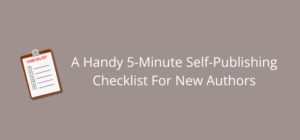The Surprising Truth About Writing: Who Are You Really Writing For?

With AI slop, fleeting trends, and fickle algorithms, I’m leaning toward the latter
It’s a debate as old as time: should authors write stories tailored to the preferences of our target audiences or write what we want to read?
Writers can come down on either side of the issue. Many, like these, argue that if you want to sell your work and have it widely read, you should be writing with a specific reader demographic or target audience in mind, as opposed to yourself.
On the surface, this seems like sound advice. After all, if you tailor your book to what you think your target audience wants — or even write it based on market trends like the romantasy frenzy or the self-help craze — you’ll be more appealing and sell more books.
Right?
Authentically artificial
In the days before AI, this argument might’ve held a little water. But now, everyone can produce a “book” tailored to audience preferences. Everyone can run analytics, figure out what’s trending, have AI slap together a consumer product stuffed with keywords that cater to those trends, and throw it up on a few publishing platforms in time to catch the wave. The algorithm promotes them, they rake in a little dough, and do it all over again when the trends shift.
Thing is, though, audiences (especially fiction audiences) have caught on to this nonsense. A couple of recent studies have shown that readers hate stories they just think were written by AI, even if they weren’t.
Readers despise the way AI sounds. They distrust its recommendations (for good reason). They flame authors for using it. They often see its books as shams (again, for good reason).
More than anything else, readers in the current GPT climate are looking for authenticity. They’re looking for authors who infuse their obvious emotional attachment to their works throughout every page. They’re looking for books that have flowered out of an internal motivation to give life to a story instead of a cynical motivation to sucker a few readers into shelling out a few bucks for a “book” that turns out to be AI trash.
Why are you writing?
If the only reason you’re writing is to make money, I’d first suggest a new profession. Being a full-time writer in this day and age is virtually impossible. Writing isn’t even a very lucrative side hustle for most people nowadays. If you’re still set on writing solely for money, I guess go ahead and use AI to generate your content. I’m sure you’ll get a few people to pay for your books before they see through the ruse, especially if you’re producing text in genres that AI handles better (think informative or prescriptive nonfiction).
Yet, if you’re not solely writing for money. If you’re writing because you want to tell the stories that are bursting out of you, you want to help others struggling in the same ways you have, or you want to leave a legacy that will outlast you — then write for yourself.
Though we’re all unique in one way or another, none of us is all that special. If we write what we want to read, the likelihood that there are at least a few others out there who will love our stories is high. Publishing and marketing are all about finding those readers who love the same stories we do.
Though some don’t believe writing for yourself actually works, there are tons of examples of books that were written entirely for their authors becoming beloved classics and massive successes.
J.R.R. Tolkien wrote books about the worlds he built in his head. Anne Rice wrote her first and arguably best novel as an outlet for the grief of losing her child to cancer. Octavia Butler wrote the books and characters she wanted to read because the genres she loved rarely represented her. I daresay all of these literary giants found themselves some readers.
These and many other writers illustrate the difference between authors who write for themselves and those who write for an audience. When authors write for themselves, their human emotion leaps off the page; their internal motivation permeates every word; their authenticity is palpable — so palpable no AI could dream of competing with it.
So why are you writing? Do you want to make a couple quick bucks without putting in a lot of effort? Or do you want to build a career in which you could one day make a living from your art? If you desire the latter, write what you want to read.
Writing what we love
We’ve seen exactly what happens when perceived audience expectations are allowed to determine content. It’s on proud display in every big-budget Hollywood production: Bland, dull movies that take no risks, are devoid of feeling and substance, and have nothing real to say.
These are films that might make their studios money, might leave them scrambling to minimize the financial fallout, but will virtually always be forgotten as soon as their audiences leave the theater. These movies have no lasting impact because they’re written for focus groups and trends — not from the hearts of their creators.
I’m not saying no writer should ever think of their audience when creating. We should consider how our words will impact those who read them. We should take our intended audiences’ feelings into account.
What we shouldn’t do is try to write to trends that could change before we get through our first edit or appeal to audiences whose preferences might not be what they are today even a year or two from now.
When we give our audiences priority, when we allow their preferences to direct or even dictate the content of our work, we wind up sacrificing our uniqueness and our authenticity in favor of maybe enjoying broader appeal. But in an era where generic, inauthentic work can be churned out at the touch of a button, the mainstream appeal that used to come with writing for a broader audience is rapidly disappearing.
That’s why, if we want to create art that says something, art that lasts, art that our loyal readers will love and return to again and again, then we must make sure we’re writing for ourselves first.
If you like my work and want updates on my debut novel, find me on Substack. To support my future writing, buy me a coffee.

